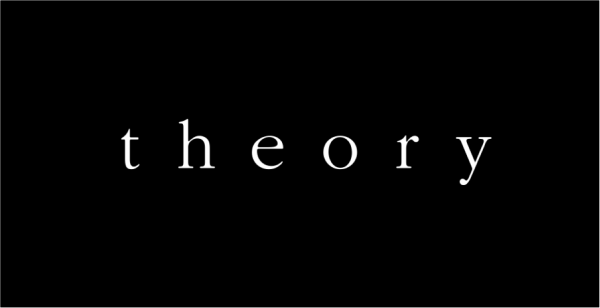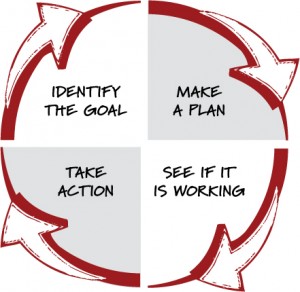
by Exponential Squared | May 27, 2015 | Marketing
There are many ways to analyze a problem, but the best way is no particular “way” at all. What I mean is that there are many ways to view a problem in business, and so one way is to initially remain open to the possibility that your first inclination is wrong.
In theory, it sounds easy. Sure, “I may be wrong here,” you say to yourself. In practice, though, are you sure that is how you are coming off to others?
Let’s say you are right about a particular issue, and so the question then becomes which lens do you look through to look for a solution? Do you analyze the situation with a Human Resource perspective? Management? What sort of politics are involved? How is your business set up? Is it egalitarian? Hierarchical?
These are just some of the questions you can ask yourself as you attempt to work through problems or develop a strategy. In asking yourself these questions and seeing problems from different angles, you will be better in a better position to fully appreciate all the implications from your decision rather than just one or two.
There really is no right way to solve a problem, but there are better ways, and it starts with accepting you in fact may be wrong. If you are able to admit such a thing to others, including management and/or your peers, you will earn something money simply cannot buy—respect. And if you earn the respect of others, you will not only be more effective at work, but happier in life.

by Exponential Squared | May 24, 2015 | Marketing
Despite how we feel about whatever it is someone is saying to us, we should refrain from “rolling our eyes” inside our own heads, because invariably it leads to outward behavioral cures that generally show up in our faces. It seems obvious, but I have seen it time and time again throughout my work life. I see someone is in disagreement with what I am saying based on how they look at me, the way they tilt their head, or otherwise hold their entire body.
Unfortunately, I have not even finished my statement, and I have been made to feel somewhat dismissed. Frankly, we should make a concerted effort to remain as open as possible to ideas suggested by others. Consider it, reflect on it in private, and then return to the individual(s) and respond.
If we are unable to remain open to others’ suggestions in the moment in which they are explaining them, we are apt to tip our cap so to speak by allowing our feelings to exit our brains and enter our facial and other related muscles. Frankly, it is entirely disheartening, and I see it all too often.
If you are a manager and you allow such feelings to manifest, you are inadvertently dis-empowering the individuals you are ostensibly in charge of supporting–both emotionally and from a practical, skill-building perspective. If you are listening to your manager and unfortunately “let the cat out of the bag,” you have effectively told him/her you are not ready to implement whatever it is they are asking (or telling) you to do.
Be mindful of your feelings and take the time to process things before responding. Behaviors start in your head, so make the effort to keep them there until you have a chance to reflect on it in private at such time you can frown or shake your head all you want. It is not an easy thing to do, but this is a technique you can implement in your everyday work life–and the results will be immediate to yourself and those around you.

by Exponential Squared | Jan 11, 2015 | Marketing
Modern technology is wonderful. I am all for it. By the same token, however, I think it can also create a lot of problems–both in life and at the workplace.
Click HERE to read an interesting article about “infomania” where researchers have found people’s IQs actually drop in certain circumstances that involve technology. Frankly, I am not surprised, but I am concerned.
Something is just not right in our society today when people cannot make it through a meeting–much less a bathroom break–without checking their phone for a text or playing a game. I get that technology is amazing and that it can enhance life, but I do question when it becomes THE way we experience it.
Honestly, I cannot count the times I have talked with people who periodically check their phones throughout a conversation. Maybe they apologize or maybe not, but would any of us break into another conversation with someone if someone else was already talking to us?
I do not own a smart phone and I have no plans to own one either. If I am too busy to pick up a phone and talk to someone or provide someone with my undivided attention, then maybe I need to take a sick day. I say this tongue and cheek, but I do think it would be helpful if all of us take a moment to reflect on how we use technology.
Technology is a tool–and on occasion–any tool needs to be put down. You just might surprise yourself, too, and those around you when you holster your smart phone and go rogue and insist on face to face communications. Handshakes and hugs mean more than smiley faces and LOLs.

by Exponential Squared | Jan 4, 2015 | Marketing
That’s what I sometimes say to myself when I tackle a seemingly simply task only to discover there is a lot more to it, which is why this line of logic can and should extend far beyond the theoretical. What I mean is that there is no such thing as a truly simple task whenever a decision needs to be made, because those decisions could touch on the need to really strategize something.
For instance, you need a flyer made to promote an event. Simple, right? What could go wrong? Well, your mission statement might be really long and not fit right next to your logo. Maybe you have 6 sponsors for the event and only 4 have sent you Jpegs of their logos and you are desperate to proceed. Deciding who to leave off a flyer could have disastrous implications. It is a seemingly simple task that ties into business strategy.
With this in mind, I try to explain as much as I can with whomever I am working, so they get he bigger picture. No one works well in the dark, so why not shed some light? It does not take too much time–and the time it does take to explain is well worth the investment.

by Exponential Squared | Jan 2, 2015 | Marketing
2015 is here, and that means many of us are thinking about implementing big plans in the coming year. These could be personal plans, ones that strictly pertain to business, or a mixture of both? Why set goals of any kind? Good question, and the answer (in my humble opinion and with some knowledge of supporting research) is that people work better with well-defined goals. Without an understanding of what we want or need to achieve, we are apt to get derailed in our quest.
In work and life, goals can help clarify things. They can provide us with some much need motivation as well as provide us with solid benchmarks to measure success. While it is a bit arbitrary, the start of a new year really does represent a great time to take stock of where you are in your life and work.
Are you happy with your job? Are you fulfilled? Are your personal relationships fulfilling? Do you feel anxious about big parts of your life? Take stock of yourself and do not be afraid to acknowledge if you sense some deficiencies. Frankly, society is very much geared toward not encouraging us to feel insecure or unsure of ourselves. We must have the latest smartphone, shiniest car, fanciest whatever. I do not think we need to subscribe to those things.
When we have goals, we have a framework for action. Goals can be good if approached with seriousness as well as some humor, because many of us are probably in a career or at some point in our lives for which we never planned 10 to 15 years ago. It is called aging, and it is a necessary and quite befuddling process. It is 2015 and a great time to find out what you want to achieve in your work and life.

by Exponential Squared | Dec 27, 2014 | Marketing
‘Work life’ is about balancing things out. And what I mean by “things” can arbitrarily be divided between work and everything else–your life. It is not easy nor is there a formula for how to balance such “things,” but you will feel when something is not right.
For instance, do you check work email at home on your smart phone while preparing and/or eating dinner? Do you feel a sense of panic when you take a day off and do not check your work email? Do you actually respond to work emails after 10 pm?
Honestly, I am no expert really on anything, but my initial thought is that there is a problem if you cannot stop working. I know this for myself, because I can literally feel my heart beat faster when I imagine all the communications that must be coming my way when I am out of the office for any length of time at all. Oddly–or perhaps predictably enough–research has found that people are substantially less productive and report less job satisfaction when they bring their work home.
I know some people work from home, including me with some projects, but generally speaking there is a reason we go into an office to work and then leave. We are physically and mentally keeping that environment separate from our home lives. It is important we do so, which to some extent may be why I took a hiatus from this blog. I took on too much and had to find a balance. In thinking on things, however, I realize that anything that has to do with the written word enhances my life. Perhaps I have found my balance.
In 2015, you can expect to regular posts on all manner of subjects, all of which will relate to the concept of work life and how to better integrate the two concepts. Ultimately, my guiding thought is that “life” is bigger than work. It is in fact all there is–and so my hope is to provide an ever evolving perspective on life and work, which pretty much covers human existence.
My objective is to get you to think. About what? That is indeed the question…






